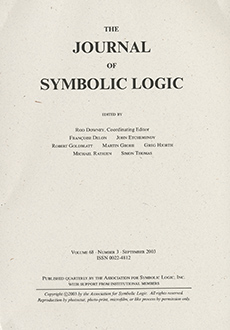Abstract
Nominal logic is a variant of first-order logic in which abstract syntax with names and binding is formalized in terms of two basic operations: name-swapping and freshness. It relies on two important principles: equivariance (validity is preserved by name-swapping), and fresh name generation (“new” or fresh names can always be chosen). It is inspired by a particular class of models for abstract syntax trees involving names and binding, drawing on ideas from Fraenkel-Mostowski set theory: finite-support models in which each value can depend on only finitely many names.
Although nominal logic is sound with respect to such models, it is not complete. In this paper we review nominal logic and show why finite-support models are insufficient both in theory and practice. We then identify (up to isomorphism) the class of models with respect to which nominal logic is complete: ideal-supported models in which the supports of values are elements of a proper ideal on the set of names.
We also investigate an appropriate generalization of Herbrand models to nominal logic. After adjusting the syntax of nominal logic to include constants denoting names, we generalize universal theories to nominal-universal theories and prove that each such theory has an Herbrand model.
Citation
James Cheney. "Completeness and Herbrand theorems for nominal logic." J. Symbolic Logic 71 (1) 299 - 320, March 2006. https://doi.org/10.2178/jsl/1140641176
Information





